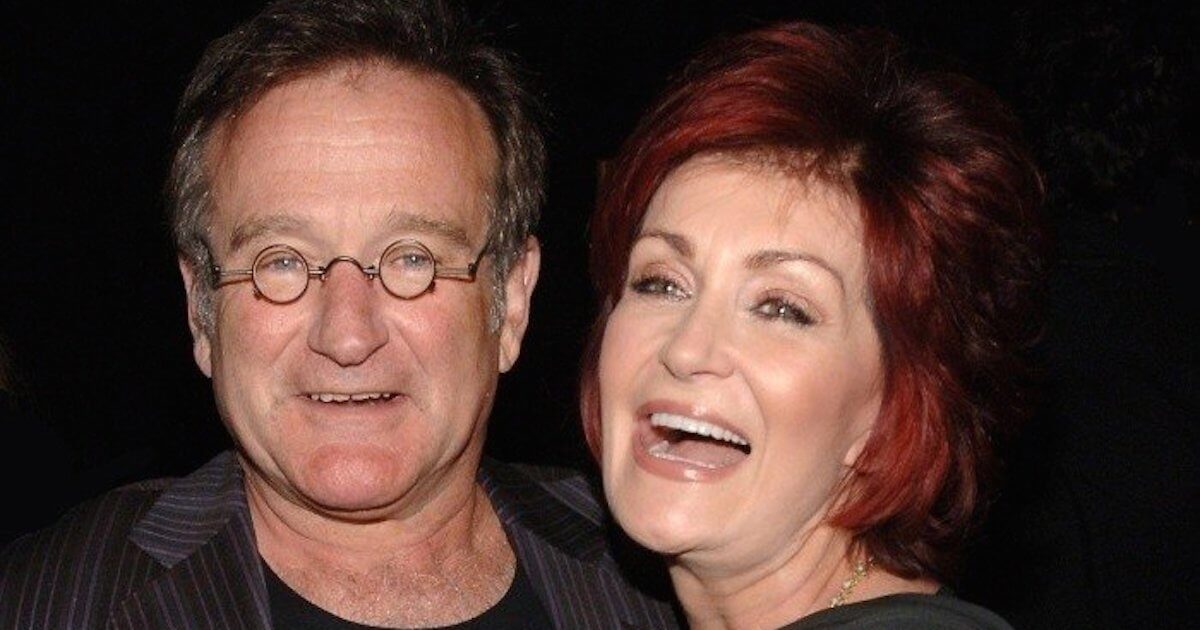Laughter is Medicine
- The Osbourne children shared that late comedian Robin Williams visited their mother, Sharon, to cheer her up during her battle with colon cancer
- Sharon Osbourne was diagnosed with colon cancer in 2002, and underwent chemotherapy which took an emotional toll on her
- A positive mindset is important during cancer treatment, and a support system makes a difference
On an episode of The Osbournes Podcast, Sharon and Ozzy Osbourne’s children, Kelly and Jack, discussed how Williams helped their mother keep fighting after her colon cancer diagnosis in 2002. According to Kelly, 35, there was a point when Sharon’s hair started falling out while undergoing chemotherapy, and she started suffering and considered giving up. Their father Ozzy, 71, noticed the emotional toll this experience was having on her, and decided to call up Williams to help cheer her up.
Read More"I just remember sitting at the bottom of the stairs and we went from crying, not knowing what to do, to just peeing ourselves laughing because we could hear Mom upstairs in her room laughing with Robin. And, the next day it changed everything and Mom went back to chemo," Kelly added.
Comedian & cancer caregiver, Jesus Trejo, says laughter is a “game changer”
Staying Positive Matters
It’s not easy to stay positive during cancer treatment, especially since side-effects of chemotherapy can be difficult both physically and mentally. However, studies have proven that the patients who have a support system surrounding them, and are able to stay positive, do better during treatment. Of course, negative emotions are extremely normal (and often warranted), but it’s important patients are able to work through their emotions in order to cope with them. This can mean turning to a support group, relying on friends and family, or in Sharon Osbourne’s case, a at-home comedy performance from Robin Williams.
Dr. Zuri Murrell explains why a positive mindset is important during cancer treatment
Navigating a Colon Cancer Diagnosis
After a colon cancer diagnosis, your oncologist will lay out treatment options for you depending on your stage. In the cases of earl stage colon cancers, patients will be happy to hear that the five-year survival rate is 90%, and usually stage one colon cancer is treated through surgery. This procedure requires a piece of the colon to be removed, and once that’s complete the colon is put back together. For most patients, the surgery will be all the treatment they need, but your oncologist will determine if you need chemotherapy.
Related: Clinical Trials for Colorectal Cancer Can Offer Cutting-Edge Treatment
A late stage, or advanced, colon cancer diagnosis may sound scary, but thanks to developing research, there are still a number of treatment options. It’s important to point out that advanced colon cancer is not always “curable,” but it can be managed. Unlike stage one colon cancer, surgery for advanced colon cancer can sometimes not remove all the tumors. So, your physician will likely recommend a combination of chemotherapy and surgery so they can help prevent the cancer from progressing and growing.
“Most patients will begin with what’s called first line treatment and remain on that treatment for a period of months usually to get initial control over their cancer,” Dr. Paul Oberstein, a medical oncologist at NYU Langone's Perlmutter Cancer Center, tells SurvivorNet. “The goal at that point is to control the cancer, prevent it from growing or spreading, and shrink it. Then once we can get the cancer under control, we like to think of this as what’s called maintenance therapy. The next step is to maintain it so that the tumor doesn’t grow, the person can continue living their life, and have reduced side effects compared to very aggressive chemotherapy.”
Dr. Paul Oberstein explains treatment for late stage colon cancer
Learn more about SurvivorNet's rigorous medical review process.


